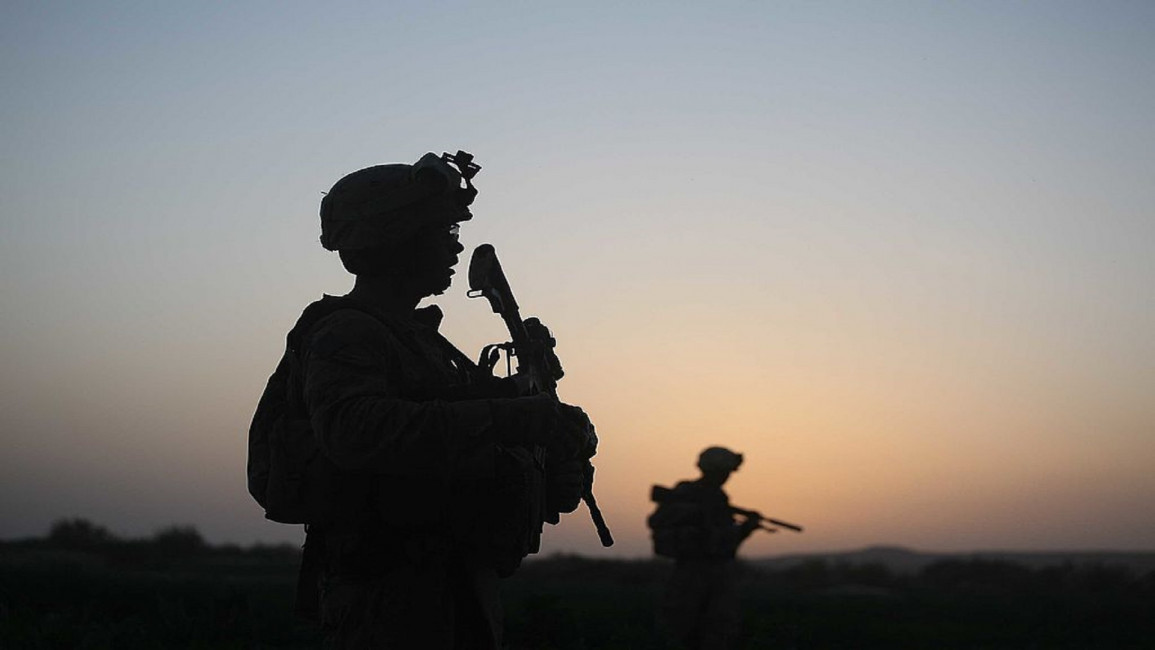US looks to fight Taliban from neighbouring states after Afghanistan withdrawal: CENTCOM
The comments highlight Washington’s intent to remain involved in Afghanistan even despite Joe Biden’s announcement for a planned withdrawal of its remaining 2,500 troops from the war-torn country before this year's 20th anniversary of the September 11 attacks.
“I am concerned about the ability of the Afghan military to hold on after we leave, the ability of the Afghan air force to fly, in particular, after we remove the support for those aircraft,” Kenneth McKenzie said during a Senate Armed Services Committee hearing.
The Afghan air force possesses just 34 “combat-capable” aircraft and five attack helicopters, according to the London-based International Institute for Strategic Studies in London.
The Taliban ruled Afghanistan from 1996 until 2001 when US-led forces ousted the group. However it has since launched a long-running insurgency and controls large amounts of territory.
The US estimates that the Taliban has around 60,000 fighters.
McKenzie also voiced his concerns over “the ability of the Afghan military to hold the ground that they're on now without the support that they've been used to for many years.”
Read more: As clock ticks, Biden's peace plan risks alienating Afghanistan's rival powers
McKenzie suggested that he supports using a base to hit terrorist targets in the country with long-range precision fire, special operations raids, fighter jets and drones, The Times reported.
The US official added that he anticipates a force being held at readiness “afloat", indicating a naval base.
Pakistan, Uzbekistan and Kyrgyzstan are the most strategically suitable for a desired “over-the-horizon” counterterrorism force. However, Washington may face challenges should it seek to upgrade a military presence in these three countries, largely in part due to potential pressure from China.
“It’s hard to see how we can keep such a force in the region with high confidence of assured access,” The Times cited a former senior Pentagon official as saying.
“It’s not clear the Pakistanis will be accommodating. Certainly the Chinese, with their increased economic interests in Afghanistan, would be very unlikely to encourage Pakistan to help us out.
"Indeed, one of the big points being overlooked in the US pull-out is the loss of a key base of operations vis-a-vis our growing competition with China. We’re doing Beijing a big favour here, as well as the Taliban.”
Acknowledging the potential logistical challenges of counter-terrorism operations from neighbouring countries, McKenzie added that it would take "considerably longer than four hours" to move armed drones or other aircraft in and out of Afghanistan.
Referring to the Pentagon's pledge to continue paying $4 billion a year to Afghanistan's miltiary, McKenzie added “if we don’t provide some support they will certainly collapse."
“I think the Afghans are going to fight back,” he said. “I can’t predict the future. I don’t know how that’s going to play out. [But] we’ll certainly do everything in our power to assist our Afghan partners after we leave.”
McKenzie told Military Times this week that Washington will not commit to a withdrawal from Iraq, amid ongoing threats from the Islamic State militant group as well as Iran.
Follow us on Facebook, Twitter and Instagram to stay connected



